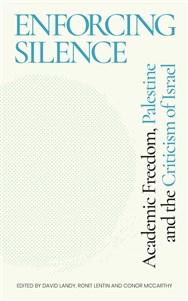Surely few writers have a more complex flavour than Adorno. 'The quintessential intellectual', as Said called him, took a perverse joy in producing ideas that, examined from no matter what angle, always seem to run athwart the current; and in presenting them in a commensurately spiky ironic and frosty prose. Minima Moralia, whose subtitle I borrowed as the name for this blog, is maybe the most formally peculiar of his books, 153 jottings and mini-essays on every topic conceivable. And yet it's also one of his more 'accessible' works, I think, and also one of the most enjoyable. Enjoying Adorno may seem like missing the point, but in these now increasingly dark times, his sinuous writings and swiftly dissolving positions offer a sharply refreshing experience. Like a cold shower, perhaps.
Here he is on the bourgeois intellectual. Any middle-class would-be radical (like me) should read this.
Conor
For Marcel Proust. – The son of well-to-do parents who, whether out of talent or weakness, chooses a so-called intellectual occupation as an artist or scholar, has special difficulties with those who bear the distasteful title of colleagues. It is not merely that his independence is envied, that the seriousness of his intentions is doubted and that he is presumed to be a secret envoy of the established powers. Such mistrust is borne out of resentment, yet would usually find its confirmation. However the actual resistances lie elsewhere. The occupation with intellectual [geistigen] things has meanwhile become “practical,” a business with a strict division of labor, with branches and numerus clausus [Latin: restricted entry]. Those who are materially independent, who choose out of repugnance towards the shame of earning money, are not inclined to recognize this. For this he is punished. He is no “professional” [in English in original], ranks in the hierarchy of competitors as a dilettante, regardless of how much he knows about his subject, and must, if he wishes to pursue a career, display a professional tunnel vision even narrower than that of the most narrow-minded expert. The suspension of the division of labor to which he is driven, and which the economic state of affairs allows him, within certain limits, to realize, is considered especially scandalous: this betrays the aversion to sanction the hustle and bustle dictated by society, and high and mighty competence does not permit such idiosyncrasies. The departmentalization of the Spirit [Geist] is a means of abolishing such there, where it is not ex officio or contractually obligated. It does its work all the more surely, as those who continually reject the division of labor – if only in the sense that they enjoy their work – reveal, by this selfsame measure, their vulnerabilities, which are inseparable from the moments of their superiority. Thus is the social order [Ordnung] assured: this one must play along, because one could not otherwise live, and that one, who could indeed live, is kept outside, because they don’t want to play along. It is as if the class which the independent intellectual deserted from revenges itself, by forcibly pushing through its demands precisely where the deserter sought refuge.
